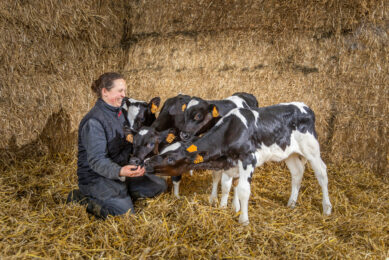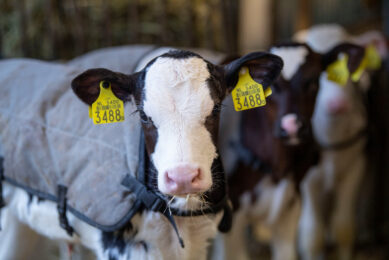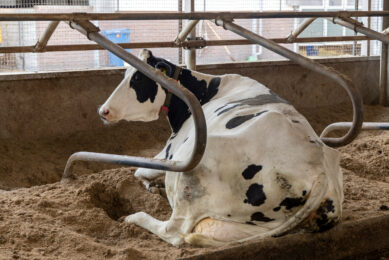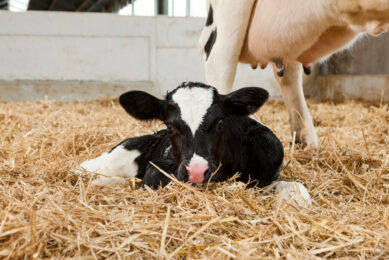New European initiative for increased cow and calf welfare
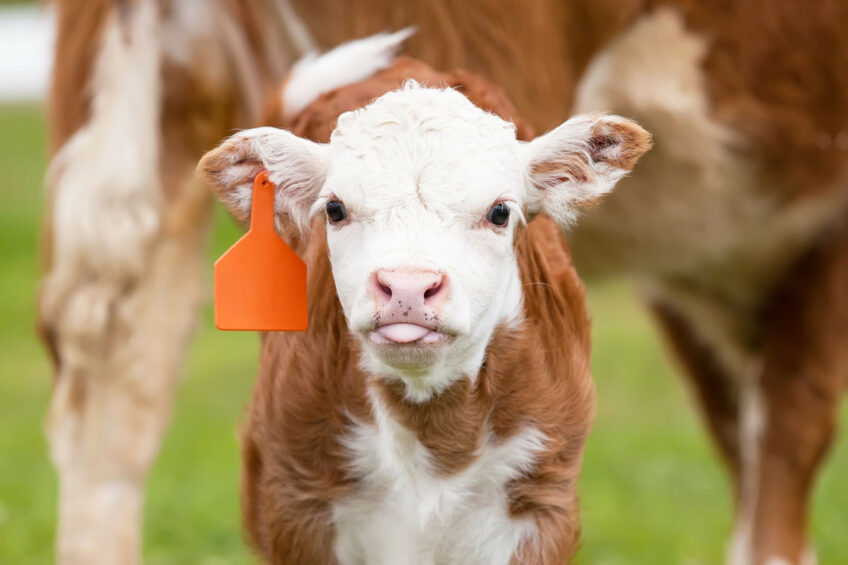
A new initiative has been launched by 14 European countries involving more than 25 organisations to introduce a new initiative to allow dairy calves to spend more time with their mothers.
Cow-calf separation is a significant animal welfare challenge and an ethical concern for many European consumers. Now, the TransformDairyNet project is designed to enable dairy farmers and others in the industry to learn from existing Cow-Calf Contact – dairy farmers who have adopted systems where calves stay with their mothers for months, promoting natural behaviours, animal health and welfare.
The initiative is in response to the European Union’s Farm to Fork Strategy, reflecting society’s demand for animal-friendly and sustainable food production systems.
Benefits of cow-calf contact
Cows that suckle their calves have a reduced risk of some post-calving diseases and a retained foetal membrane. They benefit from improved uterus involution, reduced risk of clinical mastitis and reduced residual milk in the udder. It is also less stressful for the dam. Cows which suckle their calves are able to express natural maternal behaviours including licking, nursing and bonding with the calf.
Also, the dam has a large overall improvement on calf health. Mortality can also be reduced and navel injuries from cross-sucking are avoided. Suckling reduces the risk of infection and improves milk absorption and digestion. Calves learn from their dam how to drink water and eat roughage, and benefit from an improved future milk yield and maternal behaviour themselves.
International network
Coordinated by University College Dublin, the 3-year project is designed to establish an international network which continues to support the upscaling of Cow-Calf Contact systems.
Project coordinator Siobhan Mullan said: “We are delighted to be working with pioneering farmers and others to enable more dairy cows and calves to spend time together all across Europe, making sure we’ve got a dairy sector fit for the future.”
Dr Jessica Stokes, associate professor in Farm Animal Welfare Science and Policy at the Royal Agricultural University and one of the leaders of the project, said it was important to learn from each other in the adoption of Cow-Calf Contact systems.
“The Royal Agricultural University is leading in the setup of 11 National Innovation Practice Hubs and a European Knowledge and Innovation Network to share existing Cow-Calf Contact knowledge across borders, benefiting from the insights and experiences of innovative farmers and other industry practitioners who are already putting this system into practice. We are also leading the farmer-led innovation process which will fund trials in the Practice Hubs across participating countries on specific Cow-Calf Contact knowledge gaps, challenges and needs that farmers want to address.”
Join 13,000+ subscribers
Subscribe to our newsletter to stay updated about all the need-to-know content in the dairy sector, two times a week.



